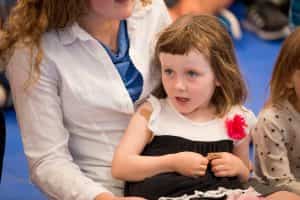By Sharon M. Barnes, MSSW, LCSW, http://therapistforsensitiveandgifted.com/
Social and emotional needs are crucial to the well-being of gifted students. When these needs are not met, the result may be low self-esteem, anxiety or depression. It is possible for gifted students to build social & emotional core strength and flexibility– in short, to become Social-Emotional ACES. An ACE, of course, is a highly skilled expert.
Gifted students and adults who are Social-Emotional ACES have what I like to call the “5G’s”:
- Gaining perspective, or the Big Picture about their social & emotional needs
- Gaining understanding and acceptance of oneself and of others
- Gaining skills to identify, express and balance emotions
- Gaining skills to meet one’s own social-emotional needs effectively
- Gaining skills to establish and maintain social relationships
Gaining perspective, can come from the Big Picture about gifted students’ social & emotional needs, especially for Visual-Spatial learners. Many gifted students have told me they feel like aliens from a different planet. They may secretly ask themselves “What’s wrong with me?” This can lead to inferiority, alienation, and deep discouragement. The tragedy that follows is that many gifted students dumb themselves down, underachieve, cop out or drop out. Some tragically go down the spiraling path of deviancy or violence. Still others live, what appears to be a normal, even a privileged life, while hiding their feelings of alienation and deep discouragement.
 Gaining understanding and acceptance of oneself and of others can be tough, especially for highly sensitive highly creative or highly intelligent people. These traits are not well understood or accepted. This is not new, but it can be changed. Let me introduce you to the gifted students’ mascot – the legendary Four-Legged-One-with-Antlers-and-a-Red-Nose. Because of his difference, our mascot-hero was ridiculed, excluded, and banished into exile. He returned from exile when his ‘defect’ was recognized and utilized as an asset. He has much to show gifted students about self-acceptance.
Gaining understanding and acceptance of oneself and of others can be tough, especially for highly sensitive highly creative or highly intelligent people. These traits are not well understood or accepted. This is not new, but it can be changed. Let me introduce you to the gifted students’ mascot – the legendary Four-Legged-One-with-Antlers-and-a-Red-Nose. Because of his difference, our mascot-hero was ridiculed, excluded, and banished into exile. He returned from exile when his ‘defect’ was recognized and utilized as an asset. He has much to show gifted students about self-acceptance.
Gaining skills to identify, expressing emotions may also be challenging, especially for the gifted with multiple intensities and over-excitabilities. It can help to know that emotions are a lot like ocean waves. Both are natural phenomena produced by the movement of energy. We typically have learned to fight our emotions, but when we do that, we lose, just like when we fight an ocean wave. When we learn to read both ocean and emotion waves, we can stay safe. When we practice riding our emotional waves (instead of acting them out), we can enjoy them and eventually even have fun with them, just like we can with ocean waves.
When we learn to identify the size of our ‘emotional waves,’ and communicate this information to others around us, this process can go a long ways towards gaining perspective in the moment, balancing our own emotions, helping others around us to balance theirs, and meeting our own and others’ emotional needs as well. These are all important steps in the process of establishing and maintaining social relationships and becoming Social-Emotional ACES.

